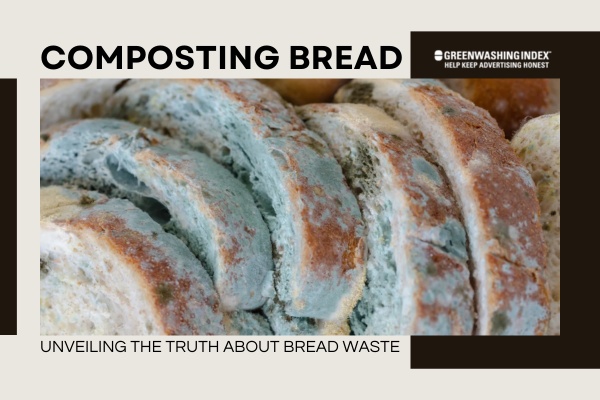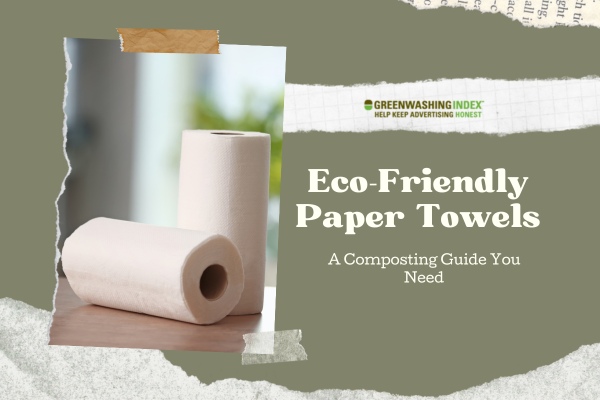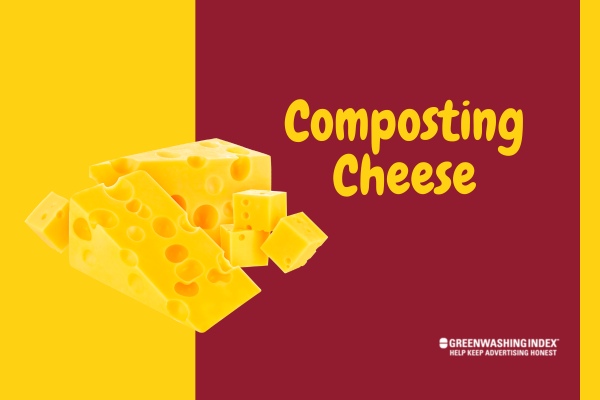You’re tossing out old bread, thinking it’s waste. But what if you’re wrong? What if it’s a potential goldmine for your garden soil? Let’s unravel the truth about composting bread. We’ll dig into the science, the methods, and the effects it has on your soil.
You’ll discover how bread, considered waste, can turn into a treasured resource. So, don’t toss that stale loaf just yet. Let’s explore the world of bread composting together.
Key Takeaways
- Composting bread significantly reduces landfill waste.
- Composting bread contributes to the health of the environment and soil.
- Mold growth and gluten issues should be considered when composting bread.
- Composting bread reduces food waste and greenhouse gas emissions.
The Value of Composting
You’re about to understand the real value of composting, particularly when it’s about bread waste. Research has shown that composting can significantly reduce landfill waste, and with bread being a common item in our trash, it’s an area worth exploring.
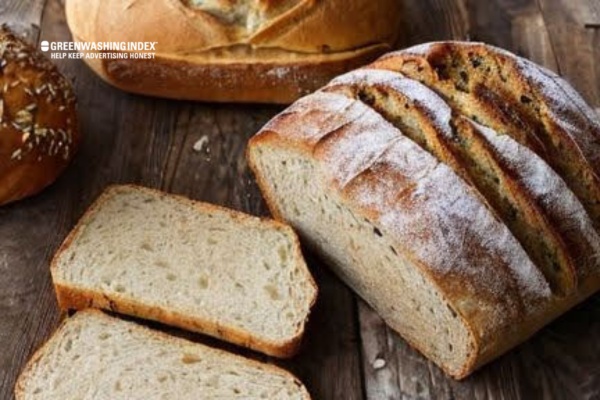
We’ll examine the fundamentals of composting and its impact on the environment, shedding light on how this simple act can make a big difference.
Grasping the Fundamentals
Before diving into the specifics of composting bread, it’s essential you grasp the fundamental value of composting itself. Composting is a natural process that turns your kitchen scraps, including various bread types, into rich, fertile soil. This process not only reduces the amount of waste you produce but also contributes to the health of your garden.
- Decomposition speed and composting techniques are crucial factors in this process. Different types of bread decompose at different rates, and the composting technique used can significantly affect this.
- Fast decomposition can lead to rapid mold growth, which is not always beneficial.
- On the other hand, slow decomposition can have significant garden implications, providing a slow-release, nutrient-rich compost that can improve soil structure and fertility over time.
Impact on Environment
The act of composting your bread waste can have a profound impact on the environment, reducing landfill waste and contributing to soil health. This simple act is a powerful sustainability practice, significantly decreasing your ecological footprint.
When you compost, you’re taking a proactive role in waste management, transforming waste into a resource rather than adding to the landfill burden.
This not only reduces methane emissions, a potent greenhouse gas contributing to climate change but also enriches the soil, promoting plant growth and carbon sequestration.
As a result, emission reduction occurs on two fronts: directly, by avoiding methane production, and indirectly, by improving the soil’s capacity to absorb CO2. Composting bread waste, thus, becomes a compelling means to combat climate change and promote environmental health.
Can Bread Be Composted?
You may be wondering, can bread be composted? Let’s sift through the evidence, examining both the risks and benefits involved in this practice. It’s time to thoroughly explore the truth about incorporating bread into your compost pile.
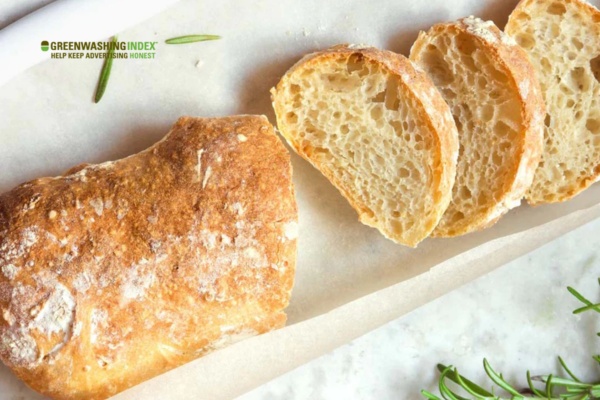
The Truth About Composting Bread
Contrary to popular belief, bread can indeed be composted, but understanding the process is crucial to avoid potential problems. Bread decomposition involves breaking down complex carbohydrates into simpler organic matter. However, you must be aware of:
- Mold growth: Composting bread might lead to unwanted mold growth, which can be harmful if inhaled.
- Gluten issues: Gluten in bread might not break down easily, potentially causing problems for gluten-sensitive plants.
- Pesticide concerns: If the bread contains pesticide residues, it could disrupt the bacterial balance in your compost.
Each of these considerations evokes emotions – the concern for your health, the well-being of your plants, and the overall integrity of your composting process. So, while bread can be composted, it’s essential you do so mindfully.
Risks Involved
Despite the potential for composting bread, it’s crucial to be aware of the risks involved. Bread, when composted, can lead to mold development due to its high moisture content. This mold might not only be harmful to your compost pile but could also pose health risks.
Additionally, the smell of decomposing bread can produce unwanted odors, making your composting area less pleasant. It’s also important to note that bread decomposes at a slower rate than other organic materials, potentially leading to an unbalanced compost.
Furthermore, bread can be a magnet for pests such as rats and insects, posing another challenge. So, while it’s possible to compost bread, it must be done with caution to mitigate these risks.
Benefits Involved
In light of the risks, composting bread can still bring about significant benefits to your garden if done correctly. Let’s explore the health benefits and sustainable practices involved in composting bread.
- Health Benefits:
- Bread compost enriches the soil, promoting the growth of healthy plants that can benefit your diet.
- Waste Reduction: Composting bread reduces the amount of food waste in landfills.
- Carbon Footprint: It also cuts down on greenhouse gases released from decaying bread in dumps.
- Eco-friendly Alternatives: Composting is an eco-friendly alternative to throwing away unused bread.
Don’t let the fear of bread waste keep you from enjoying these benefits. Composting bread, when done responsibly, can be part of your green lifestyle.
How to Compost Bread Efficiently?
You might wonder how to compost bread efficiently. Let’s explore a comprehensive guide on the process, emphasizing the critical role bacteria and other organisms play. Understanding these elements will provide you with a more effective method to reduce bread waste through composting.
Let’s dive right into how one can efficiently compost bread, reducing waste and contributing to a healthier environment. Understanding the decomposition process is key.
- Bread types: Some are easier to compost than others.
- Bread alternatives: Choosing high-fiber options can aid composting.
- Waste reduction: This is your ultimate goal, and it’s achievable with the right composting methods.
Composting methods vary, but they all have the same principle: break down organic matter into nutrient-rich soil. Your bread waste, whether it’s whole grain or white, can be a valuable addition to your compost pile. Just remember, moderation is key.
Next, let’s delve into the role of bacteria and other organisms in this process.
Role of Bacteria and Other Organisms
Diving into the nitty-gritty of composting bread, it’s the bacteria and other tiny organisms that really do the heavy lifting. Bacterial diversity is crucial for breaking down bread. Different bacteria feed on the carbohydrates and proteins, accelerating the decomposition process.
Yeast involvement can also be beneficial as it hastens the process by fermenting the sugars present in bread. However, composting bread isn’t without challenges. The high moisture and nutrient content can lead to unwanted mold growth, which could be harmful if not managed properly.
Additionally, bread can attract undesirable insects. So, it’s essential to balance your compost pile with other organic materials to avoid these issues. Now, let’s transition into understanding the effects of composted bread on soil health.
Effects of Bread on Soil
As you consider the effects of bread on soil, it’s important to understand its nutrient content and the overall impact on soil health. Research shows that bread, rich in nitrogen, can enhance the fertility of the soil when composted correctly.
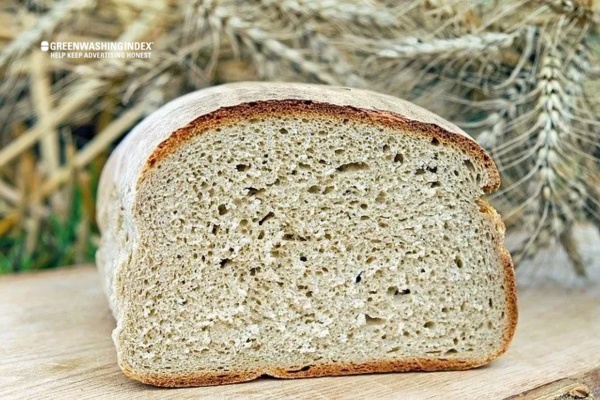
However, you must be aware of potential side effects, such as attracting pests or altering the soil’s pH level, which could potentially harm plant growth.
Nutrient Content
In your quest for sustainable living, you’ll find that composting bread, despite its high energy content, can contribute significantly to the nutrient content of your soil. The process of bread decomposition results in nutrient extraction, which enriches your soil. The dietary value of bread, along with baking variations, affects the type of nutrients released.
- Bread mold plays a crucial role:
- It speeds up the decomposition process.
- It helps extract nutrients more effectively.
- Different breads offer unique benefits:
- Whole grain breads provide more nutrients due to their high fiber content.
- White breads decompose faster, rapidly enriching the soil.
Impact on Soil Health
Now, let’s consider how your composted bread impacts soil health. Research shows that composting techniques using bread can significantly improve soil biodiversity. When bread, an organic waste, decomposes it enriches the soil with essential nutrients, acting as an organic fertilizer. This boosts the growth and diversity of microbes and other beneficial organisms, thus enhancing soil health.
However, waste management is crucial. Overuse of bread in compost can lead to soil contamination. Bread attracts pests and may contain non-organic additives harmful to soil.
Therefore, it’s important to balance your compost input, using bread sparingly and combining it with other organic materials. Composted bread, when used wisely, can be an effective tool in sustainable soil management.
FAQs
Why Is Molded Bread Not Recommended For Composting?
Molded bread isn’t ideal for composting because it can introduce harmful pathogens to your compost pile. These unwanted microbes could spread disease or attract pests.
How Long Does It Take For Bread To Decompose In A Compost Pile?
Bread breaks down fairly quickly in a compost pile, typically decomposing within a couple of weeks. However, the exact time can vary based on environmental conditions and the composition of your compost.
Can All Types Of Breads Be Added To The Compost, Or Are There Restrictions?
Most types of bread can be added to compost, but it’s best to avoid heavily processed or enriched breads that might contain additives that aren’t environmentally friendly. Simple, organic breads are the best candidates for composting.
Conclusion
Wrapping it up, composting bread is definitely doable and can provide your garden with a nutrient boost. With the right balance and understanding of the composting process, tossing your stale bread in the mix can be part of your sustainable kitchen practices. Always be mindful, though, of the potential for pests and mold that could disrupt your composting efforts.
By managing these risks wisely and applying organic composting tips such as maintaining a proper balance of greens and browns, you’ll have healthy soil teeming with life. Remember to consider both the environmental impact of food waste and the remarkable benefits that come from returning it back to the earth.

